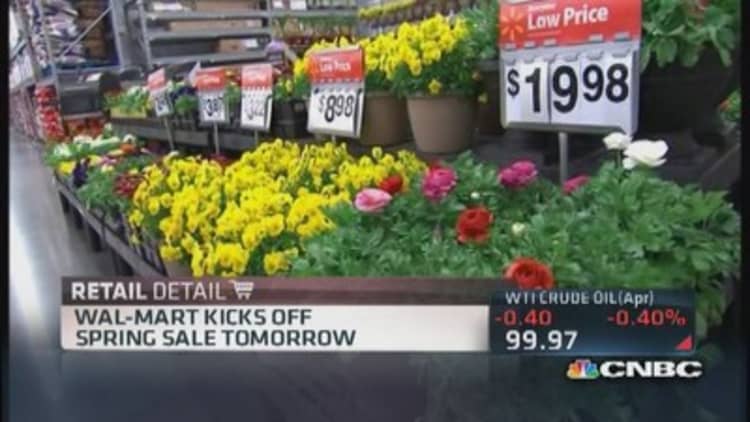U.S. stocks climbed on Thursday, recovering much of the prior day's losses, as reports on U.S. leading indicators and regional manufacturing spurred optimism the nation's economy would strengthen after first-quarter weakness, helping offset concerns that interest rates could climb quicker than had been anticipated.
"We're getting back what we lost, now that people have had a chance to reflect; The Fed is in no hurry to normalize the Fed funds rate. That exercise is going to be very deliberate and glacial, and the market is perhaps settling into that recognition," said Mark Luschini, chief investment strategist at Janney Montgomery Scott.
Wall Street declined on Wednesday, halting a two-day climb that had the not far from its record close, after Federal Reserve Chair Janet Yellen said that the "considerable period" between the end of the central bank's quantitative-easing program and its first rate hike could be six months.
"Everyone is concerned about the timing of when the Fed raises short-term rates, but it's for a good reason. The reality is the Fed has a fairly bullish view of the jobs market, and maybe the market is digesting that," said Nick Raich, CEO at the Earnings Scout.
Data released Thursday had the count of Americans filing for jobless benefits rising by 5,000 to 320,000 last week, less than the 325,000 estimated by economists polled by Reuters. The four-week moving average for new claims, viewed as a better gauge overall of labor conditions, dropped 3,500 to 327,000, the lowest since November.
"I'm anticipating a slow and steady improvement in unemployment figures, and the other reports are supportive of a slow-growth economy," said Paul Nolte, a senior vice president and portfolio manager at Kingsview Asset Management.
Other reports had existing-home sales for February falling to 4.60 million compared to a 4.66 million estimate. Leading indicators rose 0.5 percent in February, versus estimates of a 0.4 percent rise, and the Philadelphia Fed's manufacturing gauge climbed to 9.0 in March from negative 6.3 the previous month.
Major U.S. Indexes
Clearing a 61-point drop, the Dow Jones Industrial Average rose as much as 131 points, and closed up 108.88 points, or 0.7 percent, at 16,331.05, with AT&T, JPMorgan Chase and Microsoft leading gains that included 25 of its 30 components.
The S&P 500 added 11.24 points, or 0.6 percent, to 1,872.01, with telecommunications and financials leading sector gains and health care the biggest laggard.
The Nasdaq gained 11.68 points, or 0.3 percent, to 4,319.29.
The CBOE Volatility Index (VIX), a measure of investor uncertainty, declined 4 percent to 14.52.
Decliners remained just ahead of advancers on the New York Stock Exchange, where nearly 633 million shares were exchanged. Composite volume surpassed 3.3 billion.

The advance-decline ratio "is depressed today by the selling in many interest-rate sensitive sectors," Elliot Spar, market strategist at Stifel, Nicolaus, noted in afternoon commentary.
The dollar gained against the currencies of major U.S. trading partners, while dollar-denominated commodities including oil and gold fell.
The 10-year Treasury yield used in figuring mortgage rates and other consumer loans held at 2.776 percent.
—By CNBC's Kate Gibson
Coming Up This Week:
THURSDAY: Earnings from Nike
FRIDAY: Quadruple Witching, 21st Century Fox shareholder mtg; Earnings from Darden Restaurants, Tiffany
More From CNBC.com:


